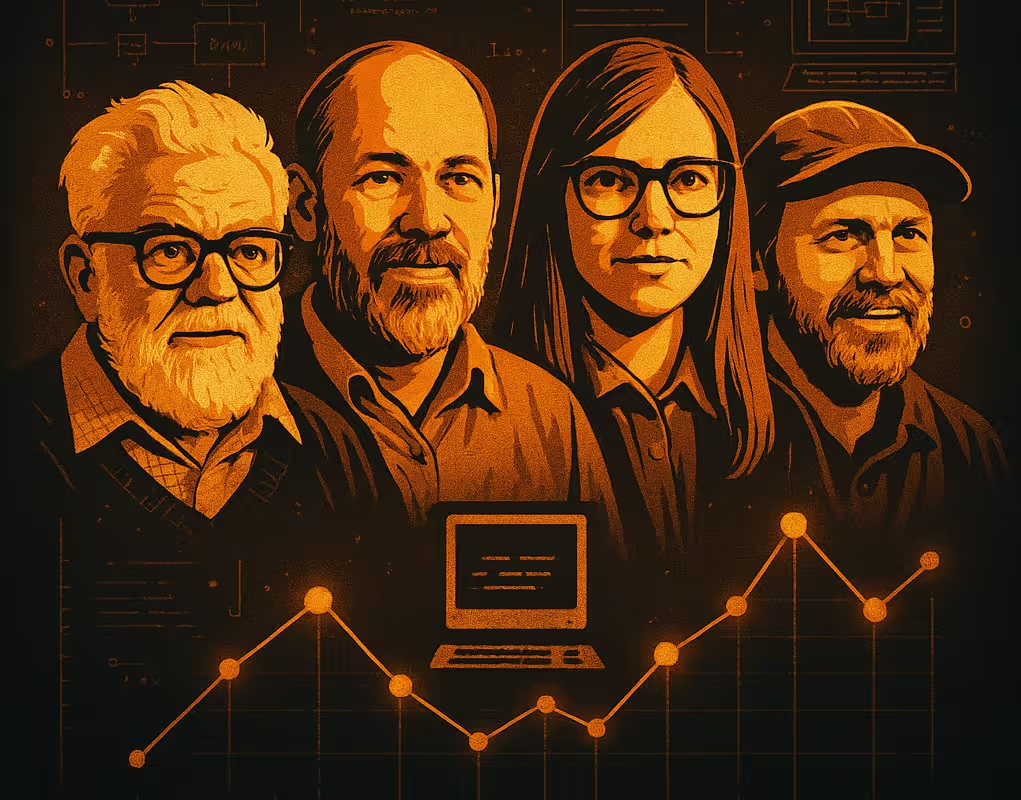Have you wondered who they were? Did you stop to think about our humble beginnings and what led us to where we are today?
We did. So we went digging. And in true Geekist style, we bring you both the brilliance and blemishes.
John McCarthy – Creator of Lisp, Coiner of “Artificial Intelligence”
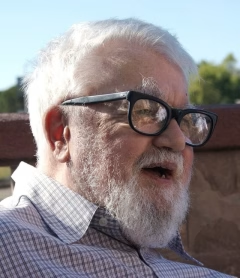
Alias: Father of AI
Langage: Lisp (1958)
Fav Operator: lambda
Special Abilities: Thinking decades ahead
Habitat: Stanford, whiteboards, parallel dimensions
What he was known for:
Hailed as the Father of AI. Yes, he coined the term artificial intelligence way back in 1955. Although not quite the version we’re panic-optimizing prompt tokens for today.
Wait. What? AI in 1955?
Yep. First computers: late 1940s.
McCarthy: AI, 1955. And not just that, he had a proposal for how to actually build it.
Then came Lisp in 1958, a language purpose-built for AI (before AI was cool). Lisp wasn’t just inspired by math, it was math. McCarthy embedded lambda calculus directly into its syntax, making it one of the most important functional programming languages of all time.
He also gave us Garbage Collection so programs could finally clean up after themselves, unlike most dev teams.
Lisp even made it to space aboard a NASA craft. So yeah, it’s done more miles than your favourite JS framework.
But McCarthy wasn’t done. In 1959, he proposed time-sharing. No, not the property MLM craze, but a radical idea where multiple users could interact with a single computer. That led to CTSS, then Multics, and eventually… Unix.
Today’s servers? Containers? Cloud instances?
All direct descendants of that moment.
What he wasn’t known for:
Building things.
Well. Besides Lisp.
McCarthy was an idea man. He planted the seeds; others harvested the frameworks.
And unlike the rockstar founders of tech lore, he wasn’t chasing the limelight. He kept so quiet, other people started getting credit for his ideas.
Which, honestly, is kinda on-brand for someone who felt machines should do the thinking…
Oral History Interview: John McCarthy
Recorded by the Computer History Museum (2007)
Read the full transcript
The father of AI in his own words, on Lisp and the machines he hoped would think.
If you only watch one interview on the roots of computing… this is it.
Dennis MacAlistair Ritchie – Creator of C, Co-Creator of Unix
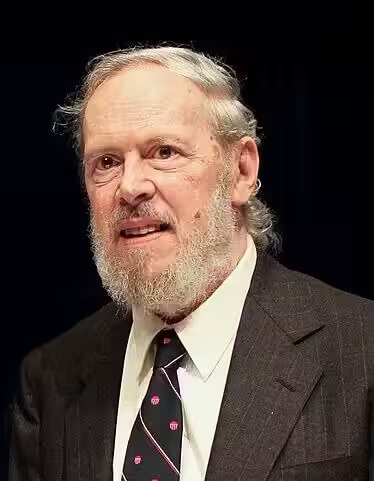
Alias: dmr
Langage: C (1958)
Fav Symbol: *
Special Abilities: Making minimalism dangerous
Habitat: Bell Labs, quietly reshaping the world
What he was known for:
So he didn’t invent programming.
But he did invent the language that programming grew up in. That language? C. Created in 1972.
If Lisp is Latin, C is Sanskrit.
(mind the poetry, not the fact)
Unlike its modern cousins, C doesn’t hold your hand. It hands you a loaded pointer and says “good luck.”
But before C, there was Unix, co-created in 1969 with Ken Thompson on a machine so small that would now fit in your electric toothbrush.
Unix: Linux? macOS? Windows kernels? Your phone? Your weighing machine?
All of it traces back to Ritchie.
He also co-wrote “The C Programming Language” with Brian Kernighan, a book so influential, it’s known by initials alone: K&R.
We’ll revisit that later when we talk about Thompson, but let’s just say:
If CS had a holy book, this was Genesis.
What he wasn’t known for:
Publicity.
Ritchie didn’t build companies. He didn’t give TED talks. He stayed at Bell Labs and kept writing software.
When Steve Jobs died in 2011, the world mourned. When Ritchie died just days later, barely anyone noticed. Wired wrote about it, but most people didn’t read it.
Recreating Dennis Ritchie’s PhD Thesis
by Computerphile (2021)
Discover the lost thesis and the Ritchie family archive on the tools used
Professor Brailsford walks through Dennis Ritchie’s unfinished Harvard thesis: unearthing the machines, the source code, and the cultural silence around the man who quietly gave us Unix and C.
Ken Lane Thompson – Co-Creator of Unix, Inventor of B, Lover of Chess
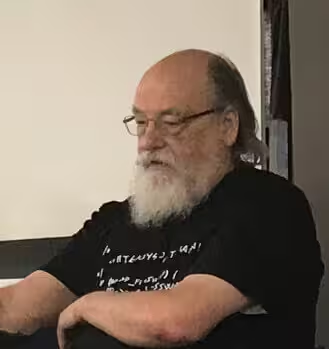
Alias: ken
Langage: B (precursor to C)
Fav Hobby: Writing software just to play chess
Special Abilities: Shipping systems before they’re fashionable
Habitat: Bell Labs, near a PDP
What he was known for:
Before C, there was B. And before Linux, there was Unix.
Ken Thompson co-created Unix in 1969, mostly to run games on a discarded PDP-7. You know, as one does.
It started as a hobby, then turned into a full-blown operating system. He wrote the shell. The assembler. The I/O system and in typical Thompson fashion, he wrote it in 3 weeks! Because it just so happened that his wife and kids were out on holiday at the time.
Later, he and Dennis Ritchie rewrote Unix in C and the rest is command-line history.
He also built pipes: the thing that lets you string commands together and that led to grep, which led to a joke Kernighan once repeated onstage
AT&T ran a campaign with the slogan: ‘Reach out and grep someone.’
Yes. They really printed that on a bumper sticker.
What he wasn’t known for:
Polish.
Thompson didn’t care much for abstraction, he liked building things fast and raw. He just wanted it to run. He didn’t care much for ceremony, he just wanted to get things done™.
Not having any interest in being founder or CEO, not even a spokesperson.
Not causing international incidents, more below…
Interview: Ken Thompson & Brian Kernighan
by Vintage Computer Federation (2019)
Read about the time he flew to Moscow to fly a MiG29
They talk about Unix, grep, pipes, chess and how Thompson’s chess machine almost started a Cold War.
Margaret Heafield Hamilton – Apollo Code Commander, Software’s Unsung Engineer
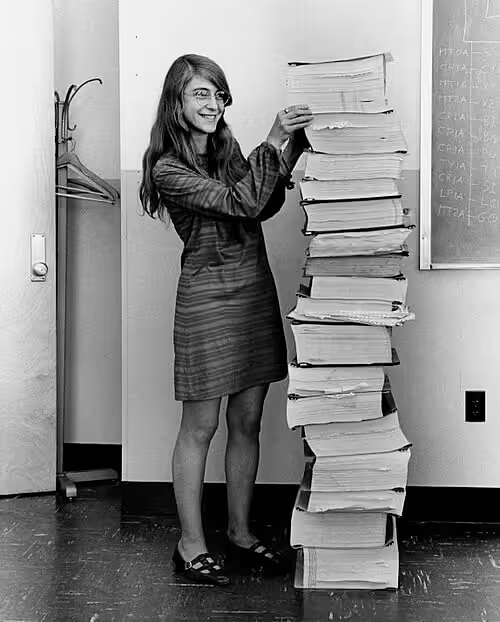
Alias: The First Software Engineer
Language: AGC Assembly
Fav Symbol: 1202
Special Abilities: Preventing mission failure
Habitat: MIT Instrumentation Lab, next to the lunar lander
What she was known for:
She led the team that wrote the onboard software for Apollo 11. The code that took humans to the moon (and brought them back.)
When the 1202 alarm flashed mid-descent, it wasn’t Mission Control that saved the day. It was her error-handling code that kicked in, cleared the noise, and let the mission proceed.
No one panicked. Well. Except maybe the hardware.
She didn’t write scripts. She wrote contingency plans. In assembly.
She also coined the term software engineering. Because some folks on the NASA program didn’t even know what the term software even was! So she added the engineering hoping people would take it seriously.
They didn’t. At first. Then she helped put humanity on the moon.
What she wasn’t known for:
Formal CS roots..
Yet she didn’t write code in garages. She did it in labs, leading teams, building fail-safes (and raising a child!) all at once.
She didn’t “disrupt.” She delivered. And her code still stands as a masterclass in fault tolerance.
Interview: Software Pioneer Margaret Hamilton
by Christie’s | Apollo 11 Feature (2019)
Also watch Computer History Museum’s Interview
Margaret recounts how the Apollo software handled the “unhandleable” and why software engineering starts with expecting the worst.
Alan Curtis Kay – Inventor of OOP, Architect of the Future That Wasn’t
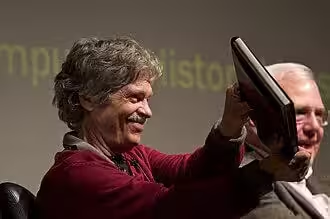
Alias: Father of Personal Computing
Language: Smalltalk
Fav Concept: Message passing
Special Abilities: Inventing ideas 30 years too early
Habitat: Xerox PARC, teaching computers to teach kids
What he was known for:
He coined Object Oriented Programming.
Then spent the next 30 years watching people do it wrong.
OOP as we know it is not quite the version he had in mind. His vision didn’t have stuff like class hierarchies or abstract factories. So, not Java. In fact, Erlang is probably closer to Kay’s OOP than anything else is.
He worked at Xerox PARC, where they casually invented:
The GUI. The Mouse. Ethernet. And other-world, everything-OO.
He also believed that children should learn programming. But not the boring syntax of it, more about exploration and play.
That led to SmallTalk, Squeak and a bunch of other languages way before Scratch existed.
What he wasn’t known for:
Shipping products.
He did build tools, tons of em’, but not for the market. He built them for minds.
He wasn’t known for technical minimalism. Take Smalltalk. There’s nothing small about it. It’s a system, an environment and a language all rolled into one.
Presentation by Alan Kay, “The Dynabook—Past Present and Future”
at ACM Conference (1986)
Alan Kay reflects on Dynabook, why GUI wasn’t the goal, and how the industry forgot what workstations were supposed to be.
Also: dry humour, philosophical jabs and a masterclass in politely roasting everyone.
Special Mentions
- Brian Kernighan
The “K” in K&R C and the guy who made Unix readable. He didn’t invent C but he helped write its manual & publish it to the world
Also: coined the term “Unix”, so technically, your terminal owes him a royalty. - J.C.R. Licklider
The original Internet prophet. Back in the ’60s, he imagined a world of connected computers, interactive graphics, and collaborative computing.
It was called the Intergalactic Computer Network, why didn’t that stick! - Grace Hopper
She gave us the first compiler, coined the term “debugging” (literally removing a moth) and believed code should read like English.
If you’ve used a high-level language, thank Grace for helping it exist. - Donald Knuth
Wrote The Art of Computer Programming, a book that’s 50% algorithm, 50% maths, and 100% flex.
Still not finished writing it. Still more prolific than all of us put together. - Ivan Sutherland
Built Sketchpad in 1963. A graphical interface before mice were even a thing.
It was so ahead of its time, it took another 30 years for UX designers to catch up.
From Lisp to C and from moon landings to “time-sharing”. These weren’t just breakthroughs, hey were turning points in how we think about thinking.
The legends we’ve met didn’t just write code, they redefined what code was, and what it could be. And they did all that without chasing trends. Without marketing or fame. All they cared about was to lay the tracks that the rest of us would ride for decades to come.
Not all of them made it to the headlines, yet their work runs quietly and invisibly, under every if, every fork and every system reboot.
